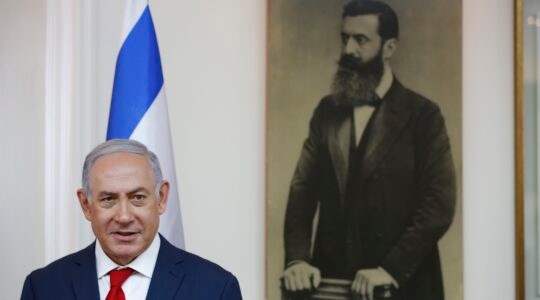JERUSALEM (JTA) — The United States will present its own peace plan to Israeli and Palestinian negotiators, a senior Knesset member told the Israeli media.
Zahava Gal-On, chairman of the left-wing Meretz party, said in a statement Monday that U.S. Secretary of State John Kerry told Israeli Prime Minister Benjamin Netanyahu of his plan to intervene with his own draft agreement after it appeared that staying on the sidelines did not help.
Kerry is scheduled to visit Jerusalem and Bethlehem on Tuesday.
Gal-On said she learned of the plan from Palestinian and U.S. officials. Israeli newspapers verified her claims, citing unnamed U.S. sources.
The plan, to be presented in January, will be based on the 1967 borders with land swaps as well as the Arab League Peace Initiative, Gal-On told the Israeli daily Haaretz.
In the current round of peace talks, Palestinian and Israeli negotiators over the past three months have met 15 times for sessions that have lasted several hours. The talks are scheduled to last nine months.
Palestinian Authority President Mahmoud Abbas reportedly told his Fatah faction Monday that there has been no progress in the talks and said they could break down over Israel’s announcement last week of new construction in West Bank settlements.
“After all the rounds of negotiations nothing is actually happening, and tensions may rise soon, since Israel says ‘we released prisoners and we can’t bear it, so we boost settlement construction’,” Abbas said, according to Ynet.
Israel released 26 Palestinian prisoners from its jails — part of a phased released of more than 100 prisoners in a bid to advance the talks — as it was announcing the settlement building.
Meanwhile, the Israeli media reported Tuesday that Israeli negotiators Tzipi Livni and Yitzhak Molcho, Netanyahu’s representative, are not in agreement on several issues, including settlement blocs and Jerusalem.
JTA has documented Jewish history in real-time for over a century. Keep our journalism strong by joining us in supporting independent, award-winning reporting.





